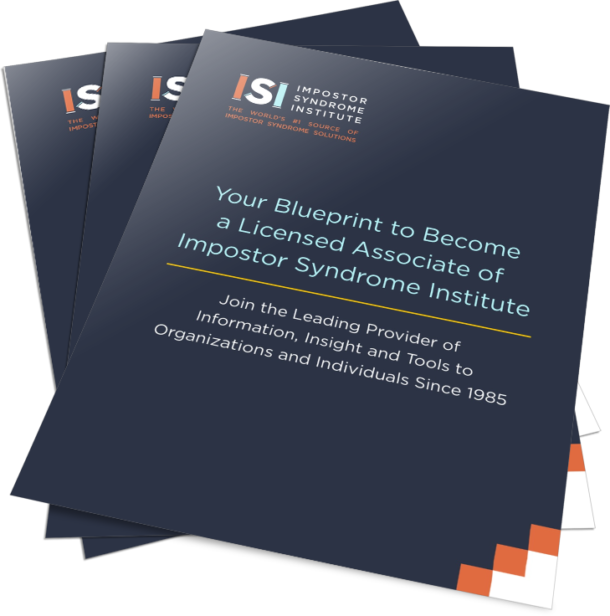It’s Oscar time again.
To watch Hollywood’s finest actors strut their stuff on the red carpet, you would hardly suspect certain stars secretly wonder if they deserve to be there.
But according to some past Oscar winners and nominees, they are frauds on the verge of being unmasked.
This persistent and all too common lack of belief in one’s abilities has a name — the impostor syndrome. People who experience it attribute their success not to hard work or talent but to things like chance, charm, or other external factors.
Academy Award winner Jodie Foster knows what it’s like to be perpetually waiting for the other shoe to drop.
It happened when she put her acting career on hold to go to college and then again after winning best actress for The Accused. “I thought it was a fluke,” Foster explained in a 60 Minutes interview. “[It was] the same way when I walked on the campus at Yale. I thought everybody would find out, and they’d take the Oscar back. They’d come to my house, knocking on the door, ‘Excuse me, we meant to give that to someone else. That was going to Meryl Streep.’”
As the stakes got higher, Academy award winner and six-time nominee Kate Winslet confessed, “I have scared moments when I think ‘Who am I? I can’t do this anymore.’ I always think, ‘God, I can’t act. Actually, I’m a complete fraud and I am going to be found out sooner or later.’” The star added, “Fame doesn’t give you more confidence.”
And Oscar nominee Don Cheadle is equally self-critical. When he looks at his work Cheadle says, “All I can see is everything I’m doing wrong that is a sham and a fraud.”
It doesn’t matter which side of the camera you’re on. Michael Uslan the producer of the Batman movies still has occasional bouts of impostor syndrome. When he’s on the set Uslan says, “I still have this background feeling that one of the security guards might come and throw me out.”
Writer and creator of such mega-hits as Two and Half Men and The Big Bang Theory, Chuck Lorre knows the feeling. “When you go and watch a rehearsal of something you’ve written and it stinks, the natural feeling is ‘I stink.’ I’m a fraud. I need to go and hide,’” Lorre told National Public Radio.
Rationally you would think so much success would alleviate feelings of fraudulence. The more successful you are, the more evident it is that you really do have the right stuff.
But for some, just the opposite happens. Instead of reducing the pressure, success only makes it worse. After all, now you have a reputation to defend. Instead of being a cause for celebration, being singled out for your industry’s highest honor can feel oppressive. You think, “Now they’ll expect me to be that good every time — and I have no idea how I pulled it off the first time.”
And why wouldn’t they?
The very nature of creative work makes you more vulnerable to feeling inadequate.
For one, your work is highly public. Not only are you defined by it, but by artistic standards that are completely subjective. How many other occupations do you know where a person’s work is judged by people whose job title is “professional critic”?
It’s a challenge to maintain a consistent level of confidence when you know you are only as good as your last performance, when even the brightest stars fade quickly, and where success requires that you prove yourself over and over again in ways few others must.
Stardom itself can cause you to question yourself even more because the reactions of those around you can be so skewed. “[W]hen you’re a celebrity,” said writer A.J. Jacobs, “anything that emerges from your mouth that vaguely resembles a joke is cause for gut-busting laughter from everyone within earshot.” With all that adoration it’s only natural to question whether you really deserve all the attention.
If the nearly universal nature of the impostor feelings among creative types tells us anything it’s that impostor feelings are both normal and absurd.
Case in point: Even Meryl Streep, the most Academy Award and Golden Globe-nominated actor in history, gets cold feet at beginning of every new project telling Ken Burns in an interview, “You think, ‘Why would anyone want to see me again in a movie? And I don’t know how to act anyway, so why am I doing this?” Meryl Streep for crying out loud!
To be an actor — or for that matter, a writer, singer, artist — means putting yourself out there.
Not only should you expect to feel afraid, but when the stakes are high, you should actually worry if you don’t.
Two-time Oscar winner and six-time nominee Denzel Washington certainly never took his starring role in the Broadway hit Fences for granted. “That last five minutes before you go on that first [Broadway] preview, if you don’t have that ‘what the hell am I doing here [feeling]’ if you don’t have that then they say it’s time to quit.”
The esteemed choreographer Martha Graham said, “No artist is pleased. [There is] no satisfaction whatever at any time. There is only queer divine dissatisfaction, a blessed unrest that keeps us marching and makes us more alike than the others.” To all the great actors – or anyone – who has ever felt like an impostor, fake, or fraud, you can continue to fight it. Or, you can rejoice in the blessed unrest that allows you to share the same human insecurity as some of the most talented people on the planet.
This article first appeared in The Huffington Post
You are welcome to reprint this post with the bio below.





